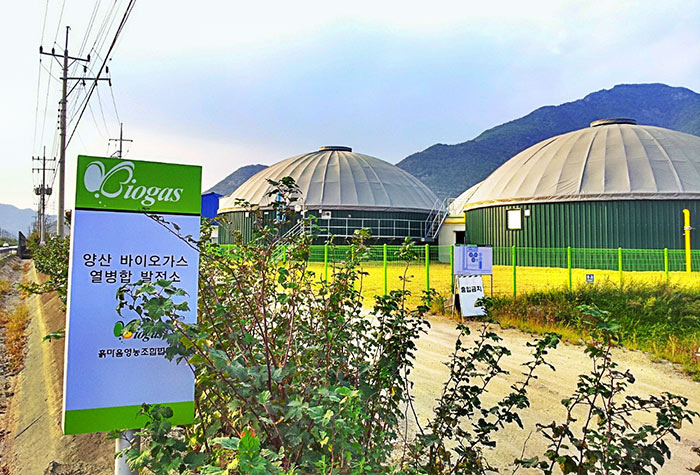Creating Renewable Energy for Jeju Island
On a small island off the coast of South Korea, Cargill helps create a sustainable waste management solution for swine producers.
January 01, 2015
Often called “the Hawaii of Korea,” Jeju Island is a tropical destination, popular among vacationing tourists and newlyweds. In fact, it was designated a World Heritage Site by UNESCO in 2007 for its outstanding aesthetic beauty. The island is also home to swine operations, which are expected to operate without emitting odors that interfere with local tourism.
To help local livestock producers preserve the island’s natural environment, Cargill awarded a US $500,000 grant to Jeju National University in 2011. The donation helped fund the construction of a bio-gas plant, designed to process manure from local swine producers in new ways. The state-of-the-art facility redirects waste into covered fermentation ponds, where it is converted into methane that powers electric generators. It produces more than 700,000 kilowatt-hours of electricity annually, providing power to the plant as well as fueling the local power grid.
The plant’s tightly sealed system also reduced the unpleasant odor associated with livestock manure, helping to maintain the island’s reputation as a pleasant vacation destination. In addition, excess waste was turned into high-quality, organic fertilizer and sold directly to farmers. Beyond eliminating smells and creating new economic opportunities, the bio-gas plant benefited the environment, generating renewable energy and cutting carbon dioxide emissions by 4,134 tCO2 in its first year.
 [image caption] Through its continued commitment to emission reduction, Cargill is helping the Korean government build a similar bio-gas facility in Yangsan.
[image caption] Through its continued commitment to emission reduction, Cargill is helping the Korean government build a similar bio-gas facility in Yangsan.
In a continued commitment to environmental innovation, Cargill is now helping the Korean government build a new bio-gas plant in Yangsan. The government’s choice to consult Cargill throughout the Yangsan project proves that the company’s bio-gas plant is respected in the industry for its best practices, and appreciated by the community for its environmental stewardship.
